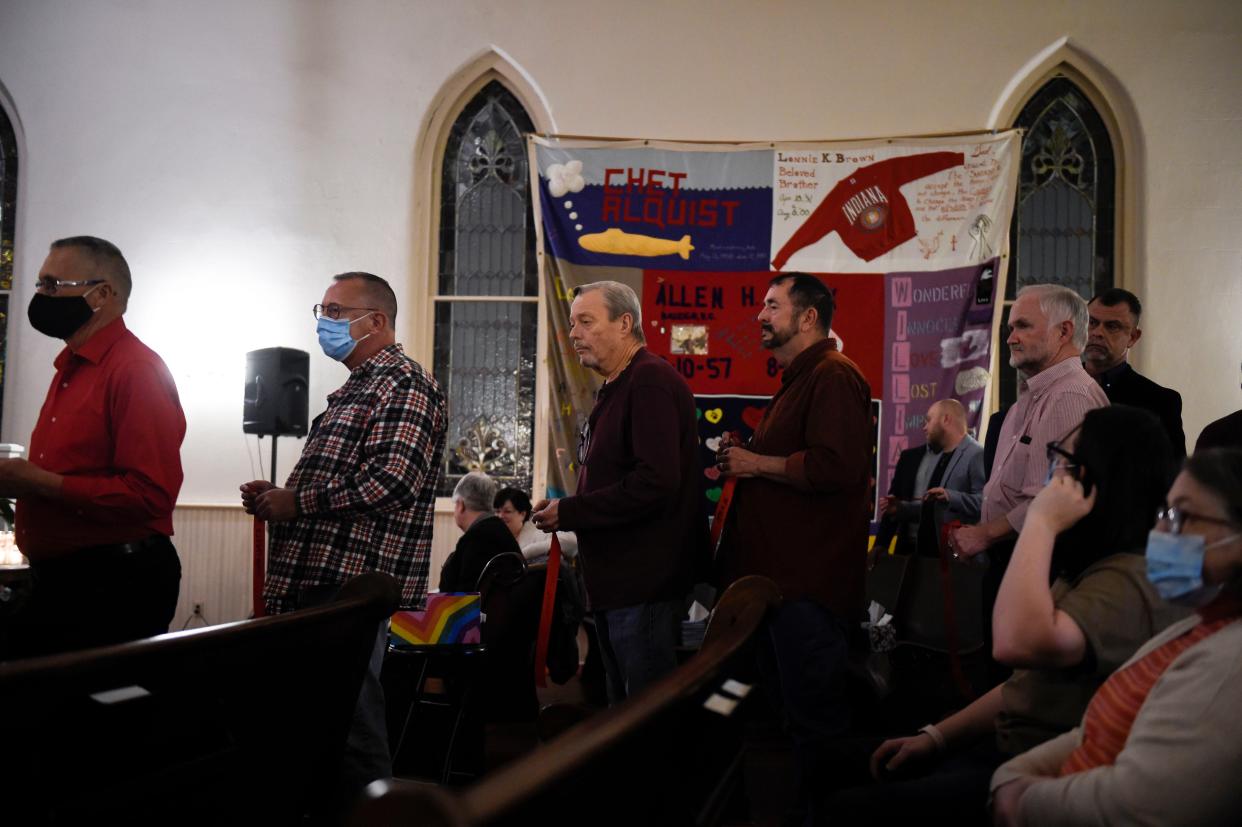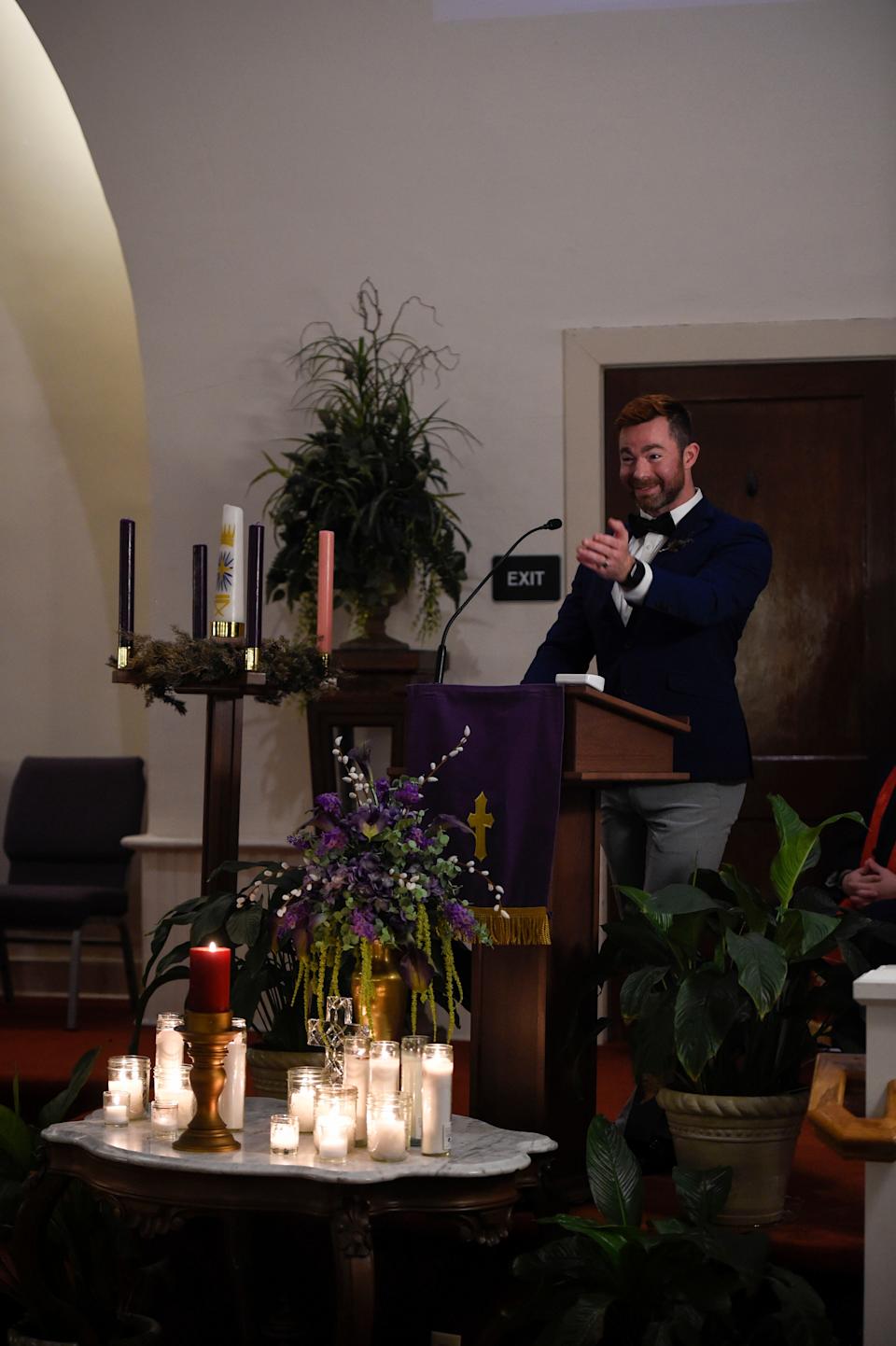A new generation of HIV infections, and a new mission for Augusta AIDS ministry

CORRECTION: A previous version of this story misidentified the Augusta University Ryan White Program.The article has been updated to reflect the correction.
One of the area’s oldest organizations dedicated to serving people with HIV is changing its mission, 40 years since the first U.S. case.
St. Stephen’s Ministry of Augusta was founded more than three decades ago when AIDS, the disease caused by HIV, was still known as an untreatable killer.
“In the 1980s and 1990s, AIDS was talked about constantly in Augusta,” said Sallie Shuford, chair of the St. Stephen’s board. “We knew people who were becoming sick with it, and we didn’t know what to do about it.”
Today prevention and treatment have advanced so much that “a life with HIV is no longer a death sentence,” Shuford said. But the lower profile hasn’t erased the stigma or the appearance of new cases, said incoming chair Jennifer Rahner, whose background includes work with area LGBTQ+ youth.

“Working with youth here locally, I met youth who are contracting HIV in their late teens, with as long as we’ve known about HIV, AIDS and ways to protect ourselves,” Rahner said. “There are still people contracting HIV and AIDS, there is still a stigma around it, there is still discrimination when it comes to workplaces and housing and all that.”
With pre-exposure preventatives such as PrEP and PEP as well as antiretroviral therapy for long-term management of HIV, some have let their guard down.
“We have so many people now who think now that it’s a manageable disease they don’t have to worry about it,” said Jordan Brack, a local HIV medical case manager for an infectious disease clinic who is involved with St. Stephen’s.
“Then they contract it, and they don’t have any care in place; they don’t have anything in place to make sure they are able to manage it,” Brack said.

In the latest Georgia Department of Public Health data available, Richmond County saw 74 new diagnoses in 2019 for a total of 1,576 living with HIV, down from 103 new diagnoses in 2018, when 1,593 were living with the virus.
The Augusta University Ryan White Program is currently treating approximately 1,200 HIV patients, and of the 98% on antiretroviral treatment, nearly 89% are at a “nearly-undetectable state,” said AU family medicine resident Soren Estvold.
Around 39% of new cases are Black, gay men between 20-29 years old, he said. “That generation doesn’t know how scary the 1980s and 1990s were. It doesn’t have those fears,” Estvold said.
The demographics of the second-largest group of newly infected people are unknown, while the third most prevalent are transgender, he said.

Augusta Pride President Michael Barnard said the city’s population of gay homeless youth is overlooked by service providers.
Last year, the St. Stephen’s board decided it was no longer financially viable to operate its transitional housing and treatment center on Greene Street and sold the property. It also asked providers and members of the community to complete surveys to help determine where funds should be spent.

The results of that community-needs assessment are in and most cited were education and awareness, to fight the stigma and prevent and treat the illness, said board treasurer Isaac Kelly.
On Wednesday, at one of at least four Augusta events commemorating World AIDS Day 2021, the board revealed it will no longer provide direct services such as shelter, transportation and food to people with HIV. Instead, it will use its assets to become a grant-making and fundraising organization moving forward, Shuford said. Part of that new direction will be seeking to increase community awareness.
Founded in the late 1980s as an outreach of St. Alban’s Episcopal Church, over the years St. Stephen’s has provided transitional housing and assistance with medical needs and operated support groups, a thrift store and walk-in food pantry. In recent years, federal funds to operate group housing for people with HIV has dried up.
As chair, Rahner said her goal is to replace the shame, misinformation and fear tactics of the past, which don’t work.
“My goal is to bring unbiased, non-shaming education to our community, so we can keep people safe from catching a virus but also so we can change some of the attitudes, some of the stigma around the virus,” she said.
This article originally appeared on Augusta Chronicle: One of oldest area organizations for HIV population changing mission

